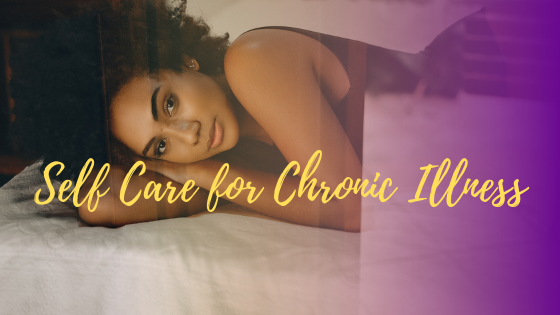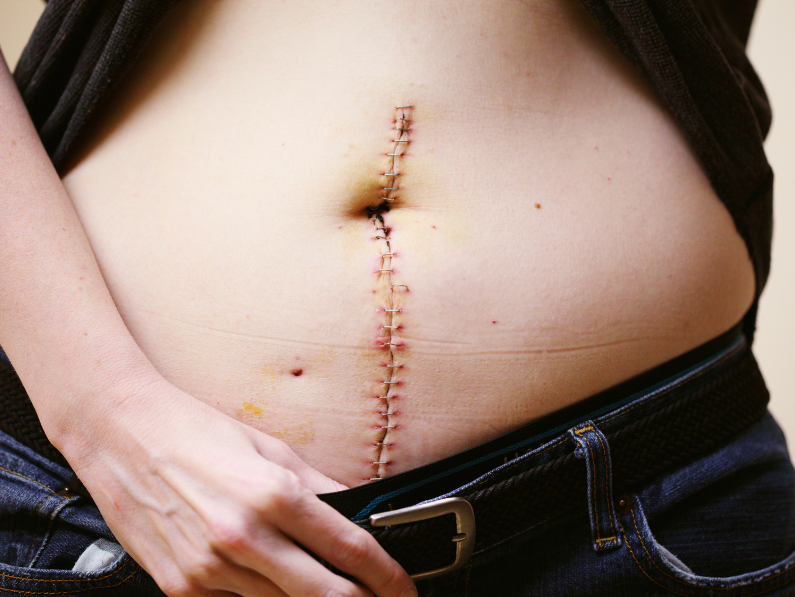A quick scroll through your social media feed, and you’re destined to stumble upon some influencer discussing why self-care matters. Unfortunately, the majority of these posts have one thing in common. That is the fact that the person is usually soaking in a jacuzzi tub in a gorgeous locale while covered in a face mask. My problem with this depiction of self-care is that it promotes that self-care is about pampering and luxury. If you want to properly take care of yourself, you must schedule a vacation to Bali with 5 of your best friends, drink green smoothies, spend all day in the spa and sip champagne. While that does sound like a pleasant little getaway, self-care is so much more than this.
Especially if you are working to manage a chronic illness day in and day out. On average, roughly 133 million Americans are diagnosed with a chronic illness. That’s about 40% of this country’s population.(1) This means that many people are dealing with symptoms such as chronic fatigue, chronic pain, inflammation, digestive distress, and flare-ups. These are a few critical issues many chronic illness warriors face daily.
This is why redefining self-care for chronic illness sufferers is essential. Learning how to practice simple, easy-to-execute self-care habits daily can help manage chronic illness.
Page Contents
5 Ways to Practice Self-Care
What exactly is self-care? In a nutshell, self-care is the act of taking care of oneself. Contrary to gorgeous Instagram pictures, the act of self-care can manifest itself in a variety of actions. For example, spending time brushing your teeth in the morning and in the evening is self-care. Likewise, washing your hair, taking a shower, and washing your hands before eating. All of these simple daily activities are all about self-care. Now let’s talk specifically about some essential self-care habits that are super important for those who have a chronic illness and want to better manage their symptoms.
Manage Your Chronic Condition
Whatever symptoms you experience with your specific chronic condition taking the time to properly manage them is essential. This is through lifestyle modifications, diet, exercise, or holistic therapies. In addition, taking the time to treat and address your condition will help you decrease flare-ups and symptoms. While also improving quality of life. Two ways you can manage your chronic illness are to:
- Get Regular Check-ups
Regular doctor visits where your blood work and other essential health metrics are analyzed can provide vital feedback. You can learn if additional changes need to be made or if you’re on the right track. - Keep A Wellness Journal
Having a journal where you regularly log and track symptoms is a perfect companion for doctor’s appointments or explaining your chronic illness to loved ones. It’s also a great place to store vital health information such as blood pressure, blood sugar, a list of current prescriptions, flare-ups, etc.
Nourish Your Body
Following a well-balanced diet containing whole, minimally processed foods will feed your body essential nutrients. Your friends are antioxidants, anti-inflammatory properties, adaptogens, phytonutrients, and probiotic-rich foods. They help rebuild the body’s immune system, decrease inflammation, and protect you from oxidative stress. In addition, working with your doctor to find a nutrition plan that works best for your unique chronic condition can help manage pain and decrease symptoms.
Also, looking into different supplements can help protect you from nutrient deficiencies. Work with your doctor to find supplements that are ok for you to take. Ensure you understand the proper dosage and amount you should aim for daily so you don’t overdo it.
Practice Healthy Skin Habits
The skin is one of the first places that show an underlying problem or issue with health. Hormonal imbalances and inflammation within the body can impact how your skin looks and feels. In addition to nourishing your body with the foods you consume, taking care of your skin daily can also help to decrease these issues. Implement a balanced skincare program with products that address your specific and unique concerns. If you’re struggling with acne or hyperpigmentation, finding products that address these particular concerns can be helpful. With dry or sensitive skin, avoid irritating products and instead opt for gentle cleansers, exfoliators, and treatments.
Cleansing, hydrating, and protecting your skin should be basic behaviors you practice daily.
Move Your Body
Gentle exercise is another beneficial activity that can help with decreasing pain and managing symptoms. Finding the type of exercise that is ok for you to commit to without aggravating your symptoms is vital. Aim to create and follow short workout sessions that won’t completely drain you of all your energy. 30-45 minutes on days when you aren’t dealing with a flare-up and perhaps 15-20 minutes when you are in a flare-up. Of course, the length of exercise and the type will depend on what you can do and what your level of tolerance is.
Suitable forms of gentle exercise include:
- Pilates
- Yoga
- Barre
- Walking
- Jogging
- Dance
- Light Resistance Weight Training
- Bodyweight Workouts
Choose what works best for you, go at your own pace, and stick to it.
Protect Your Energy
Your energy is precious. Fatigue is always a struggle with chronic illness. Learning how to manage your energy and not put too much on your plate can be one of the most challenging things you do for yourself. Take time to plan and schedule your week. This can help decrease anxiety, give you more control of your time, and prevent you from overcommitting yourself. When scheduling and planning your week, include downtimes at regular intervals. When you feel you are becoming too frazzled or your week is looking too hectic, it’s time to start scaling back.
Also, make sure that you’re getting enough sleep. Sleep can be difficult when dealing with chronic pain that becomes an issue at night. Discuss with your doctor if there are medications that can help with decreasing pain while also helping you sleep at night. Try natural remedies such as chamomile tea or melatonin. Avoid overstimulation in the evenings and opt to not watch shows or engage on social media 30 minutes to an hour before bed. Practice deep breathing and listen to relaxing music. Set the mood for a relaxing night of deep sleep.
These are some fundamental ways you can begin implementing self-care into your daily routine. It’s important to remember that it’s ok to not always be ok. Sometimes you’re not always having a great day or a great week. Take it one step at a time, day by day. Stick to the basics, and remember you’re a warrior.






